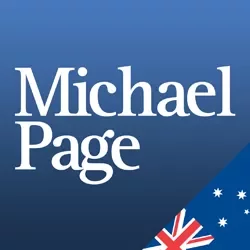Top social media recruitment strategies for 2023



Social media is now part and parcel of our professional lives. According to data from LinkedIn, 56% of job seekers use social media to look for new opportunities, while online professional networks are the top source of quality hires for organisations.
In the race for talent, social media can add significant value to your recruitment strategy by boosting your brand presence while helping to target and attract strong candidates for open roles.
Australians are some of the most active social media users in the world. According to a report by Hootsuite and We Are Social, 82.7% of Australians were active on social media, an annual growth of nearly one million users.
The most used social media platforms amongst Australian internet users aged 16-64 are:
Candidates and organisations alike are harnessing social media to find and share job opportunities. According to data shared by Sprout Social:
Social media is a prime opportunity to grow your employer brand, share open roles and tap into a talent pool with a strong interest in, and relevance to, your organisation. But where should you start?
Employee advocacy is one of the most effective ways to add validity to your employer value proposition (EVP) and convince candidates that your organisation is worth joining. Encourage your employees to share job openings, interesting projects, culture stories and company updates – the more content that comes directly from your people, the more your EVP will be seen as authentic.
A great example of this is Adobe’s LinkedIn Life page, which features perspectives from real employees across the globe, all tying back to a fundamental principle: “Our people are our most important asset”.
Just as in marketing you need to be where your customers are, in recruitment it’s equally important to understand your candidates preferred channels and meet them there.
For example, if you’re looking for tech talent such as software engineers, GitHub is a great place to connect with potential candidates. Do some online research or even ask your employees which platforms they use – tapping into niche communities is a fast track to engaging specialised talent.
Many social media platforms have advanced search options that can help you pinpoint relevant candidates. The most obvious one is LinkedIn Recruiter, which allows you to use advanced search filters to define and find specific talent pools. You can also use smart suggestions to create a more targeted search based on recommended skills, locations and titles, and integrate with your applicant tracking system.
Similarly, Facebook’s Graph Search enables you to search profiles based on location, interests, pages liked and areas of study, which is useful if you’re looking for local talent with specific education or interests.
Share images from company events, employee achievements and milestones, live stream team building activities, or highlight CSR actions. Showcasing your company culture is a key strategy to differentiate your organisation from the competition and attract the attention of a wider talent pool.
Tried these tips but still can’t find the talent for a specific role? Contact our specialist recruitment consultants to help you with your hiring needs.
If you are an employer and would like to discuss your hiring needs, fill in the form below and we will call you back.
